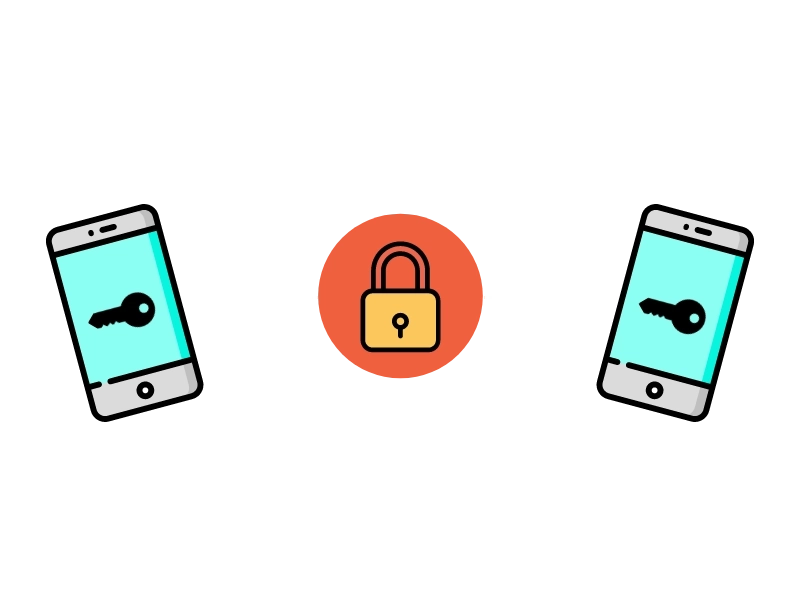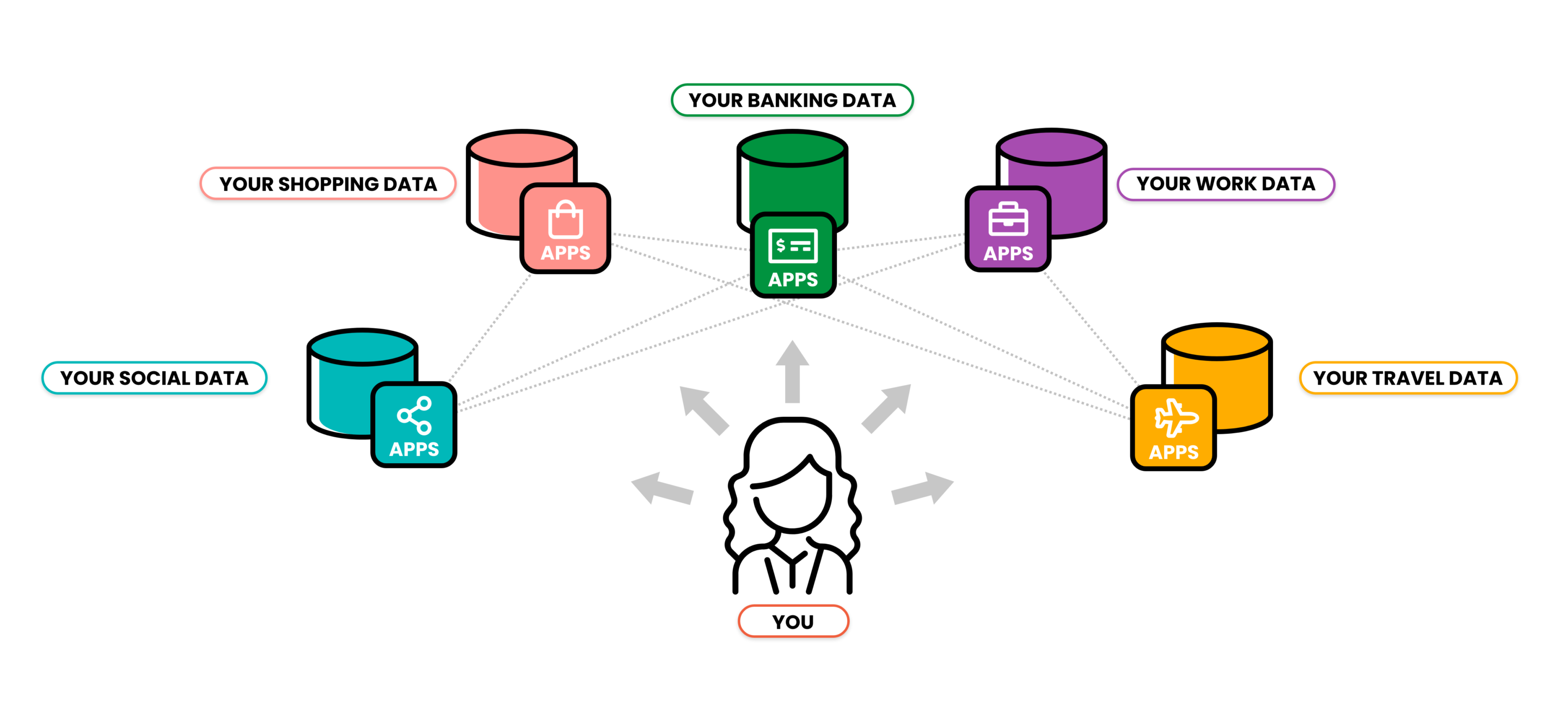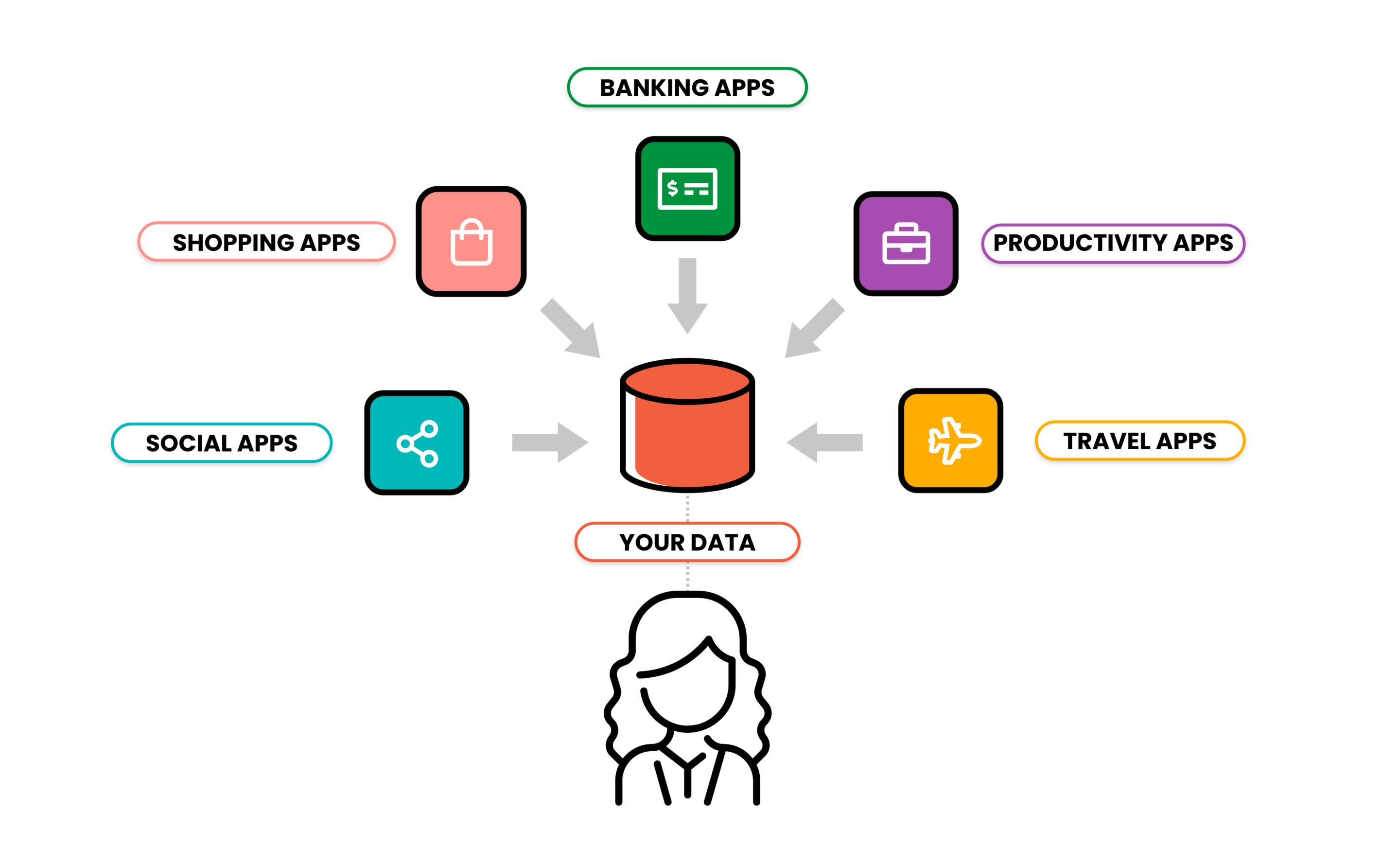
The atPlatform
Flipping the Internet
A Brief Overview of the atPlatform
Who hasn’t been frustrated with physically changing addresses? You are moving and not only do you have to deal with all the hassle of boxing up your things, you have to arrange for all your mail to be sent to the new address. Then the digital address changes are even more brutal. All the companies that you do business with, friends, acquaintances, family members – how many hours will it take you to update them all? And those are just the ones you remember!
This is due to a fundamental architecture problem: the replication of your data across the internet, where everyone else owns it, except you. When something changes, you have to log into each different platform and manage whatever version of the data that company has.
Here is today’s Internet architecture:

APPS own the data.
Here are the problems this architecture causes the person, you:
Your data is:
- duplicated
- out of date
- spread all over the internet
- vulnerable to hacking
Surveillance can be (and most often is) used on these platforms
Usernames and passwords must be managed by you, and are different for every application
Here are the problems this architecture causes developers/companies:
- You must build and pay for a database to hold all the data
- You are liable for and have to protect the data
- You have to encourage your customers to keep their data up-to-date
- You have to comply with constantly changing privacy laws surrounding the data
- You have to help your customers manage their usernames and passwords
- You want to use end-to-end encryption, but key management is challenging
What does the next generation look like?

This is the atPlatform, where YOU own the data.
Everyone has a unique atSign and their own datastore tied into their phone and replicated in the cloud.
With this architecture, your data is:
- Stored once (though it can be backed up)
- Protected by your keys
- Accessed by applications/companies with your permission, and that permission can be revoked by you at any point in time
- End-to-end encrypted at all times
You update your address once and all the companies that you do business with and all your friends immediately have your new address!
For the company/developer, this provides:
- Automatic compliance to all privacy legislation
- Less liability
- Less, and in many cases, no infrastructure requirement, therefore substantial cost savings
- Less support overhead because you don’t need to manage usernames and passwords
- 30-50% faster time to market since you don’t have to build a user data structure
- An easy way to create new peer-to-peer, end-to-end encrypted apps
- A way to create new experiences for customers because the protocol is polymorphic